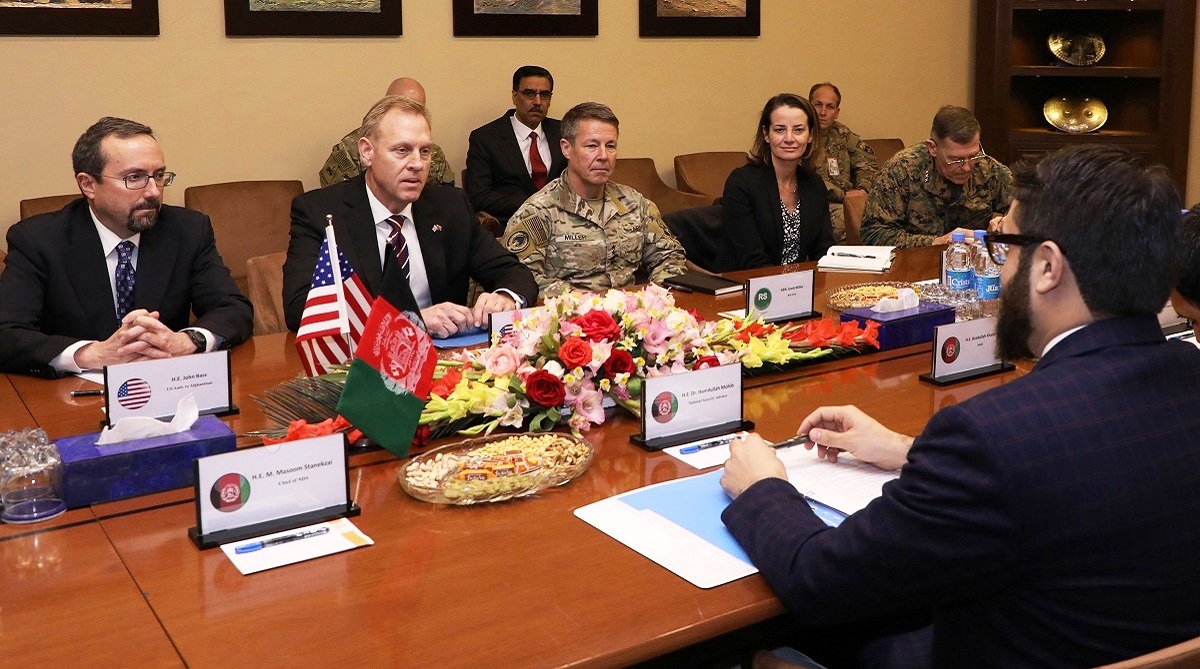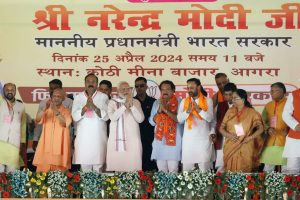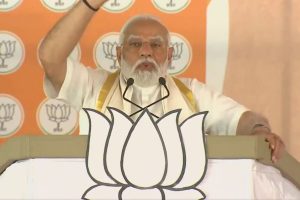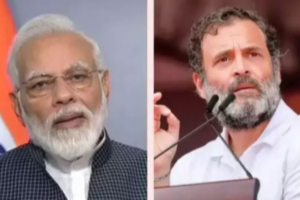President Trump has decided to withdraw American troops from Afghanistan. His patience is apparently on the wane. Disagreeing with the views of some of his generals and strategic advisors, he intends to pull out of the unwinnable 17-year-old Afghan war. He has changed his previous calculation of retaining American troops in Afghanistan, without paying too heavy a political price. But if the situation deteriorates and the rate of American casualties is high, the domestic political opinion is bound to change. The situation is now changing for the worse, the Taliban offensive has become more vicious and violent, and the casualties among Afghan security forces are said to be disproportionately high.
The Afghanistan war has claimed more than 25,000 civilian lives since 2009. About 45,000 members of the security forces have died since 2014. As a result of the war, a bountiful country has become one of the poorest in the world.
The proportion of districts under Government control and influence has fallen from 72 per cent in 2015 to 50 per cent now. A Taliban attack on a training base for pro-government militia claimed at least 43 lives, underlining the perilous security issue.
President Trump’s decision to withdraw forces stationed in Afghanistan has evoked critical responses from many strategists and generals. A report authored by James Dobbins, former President George Bush’s special envoy to Afghanistan, has clearly said that, in the event of a precipitous withdrawal, the government in Kabul will lose influence and legal legitimacy, and terror groups such as Al Qaida and ISIS would be encouraged to intensify their attacks on various US targets. Afghanistan will irreversibly slide into a wider civil war. There is also the danger that Pakistan may become more open in its backing of the Taliban insurgents.
Some US commentators have expressed the fear that Trump may withdraw the American forces even without an agreement with the Taliban because he strongly feels that important regional countries should come forward to create stable conditions in Afghanistan rather than the United States, which is 6000 miles away. He has also criticized India for building libraries in Afghanistan, without providing troops on the ground. Trump’s moves on Afghanistan and Syria have prompted the resignation of his Pentagon Chief, Jim Mattis, who in a letter to Mr Trump wrote that the President should find a Defence Secretary who is better aligned to him.
The election of the President of Afghanistan is scheduled to be held soon. The present micromanaging President, Ashraf Ghani, has not inspired confidence. There are also other candidates in the fray. A credibly elected Head of State will strengthen the position of the government to negotiate with the Taliban. An Afghan President, with a strong mandate, would be in a better position to discuss contentious issues with the militants.
Peace negotiations between the US and Taliban have been held in Doha, Qatar. America is very keen to arrive at a political settlement with the Taliban. Washington’s pointman on Afghanistan, Zalmay Khalil Zad, has expressed the hope that negotiations for a comprehensive ceasefire will be successful. The key sticking point is to persuade the Taliban insurgents to speak to the Afghan government, which they have condemned as an ‘American puppet’. The Taliban will have to pledge that they will not allow international terrorist groups, notably the Al Qaida and ISIS to use Afghanistan as a launching pad for attacks against America. The US Secretary of State, Mike Pompeo, has also said that the news from Doha was encouraging. America has also involved other stakeholders such as Pakistan, Russia and China. Taliban has appointed Mulla Baredar Akhund as its chief negotiator. Akhund is one of the top Taliban leaders who is expected to negotiate from an authoritarian position.
In view of President Trump’s eagerness to pull out American troops, and strike a deal with the Taliban, the insurgents are likely to make promises, which they have no intention to fulfil, on the assumption that America, after withdrawal, will be very reluctant to send troops again. Hence, it is likely that the peace agreement may not offer a durable settlement and may be only a fig-leaf to cover the retreat of American troops. India is one of the stakeholders in Afghanistan, but it has become marginalized in peace negotiations. Pakistan in its turn has given up the ambition of ruling Afghanistan as a puppet state, in its quest for “strategic depth.” It now wants an Afghan government, which is not an ally of India, and hostile to Pakistan. It realizes that unless the situation is stabilised in Afghanistan, Pakistan’s stability will be endangered.
Gen Dunford, Commander of US forces in Afghanistan, was spot-on when he said that if Pakistan provides sanctuary to terrorists, it will be the single biggest factor that would lead to the failure of the coalition. The neighbouring power, China, wants peace and stability in Afghanistan, so that there are no unsettling repercussions on Uyghurs in Xinjiang province. China and Russia are also interested in stability in Afghanistan.
Developments in Afghanistan will put India in a tight spot. If the Taliban strengthens its grip over the country, its influence could subsequently spread to neighbouring Pakistan and Kashmir, a development that is bound to be greeted with consternation in India. It may be quite possible that Taliban will join hands with Pakistani militants to create safe havens for terrorists targeting India.
India has made huge investments in Afghanistan’s development, having provided about $ three billion. The country’s new Parliament building, Salma Dam in Herat province and a highway to Iran’s Chabahar port, are among these major projects. At this stage when the scenario in Afghanistan is fluid, it is imperative for India to maintain close contact with all groups, including the Taliban. But this has to be done covertly. Trump’s ill-conceived Afghan policy should prompt India to reconsider its perception that it enjoys the backing of the US in Afghanistan.
It is time for New Delhi to reassess its policy options and engage with the Taliban, as the Army chief, General Rawat, has suggested in order to safeguard its own interests. If Pakistan succeeds in keeping some people in the new Afghan government, who are hostile to India, it will seriously affect this country’s interests and assets that it has built up there over the years. India will have to thwart such designs of Pakistan.
(The writer is Senior Fellow, Institute of Social Sciences, former Director-General, National Human Rights Commission, and former Director, National Police Academy)











